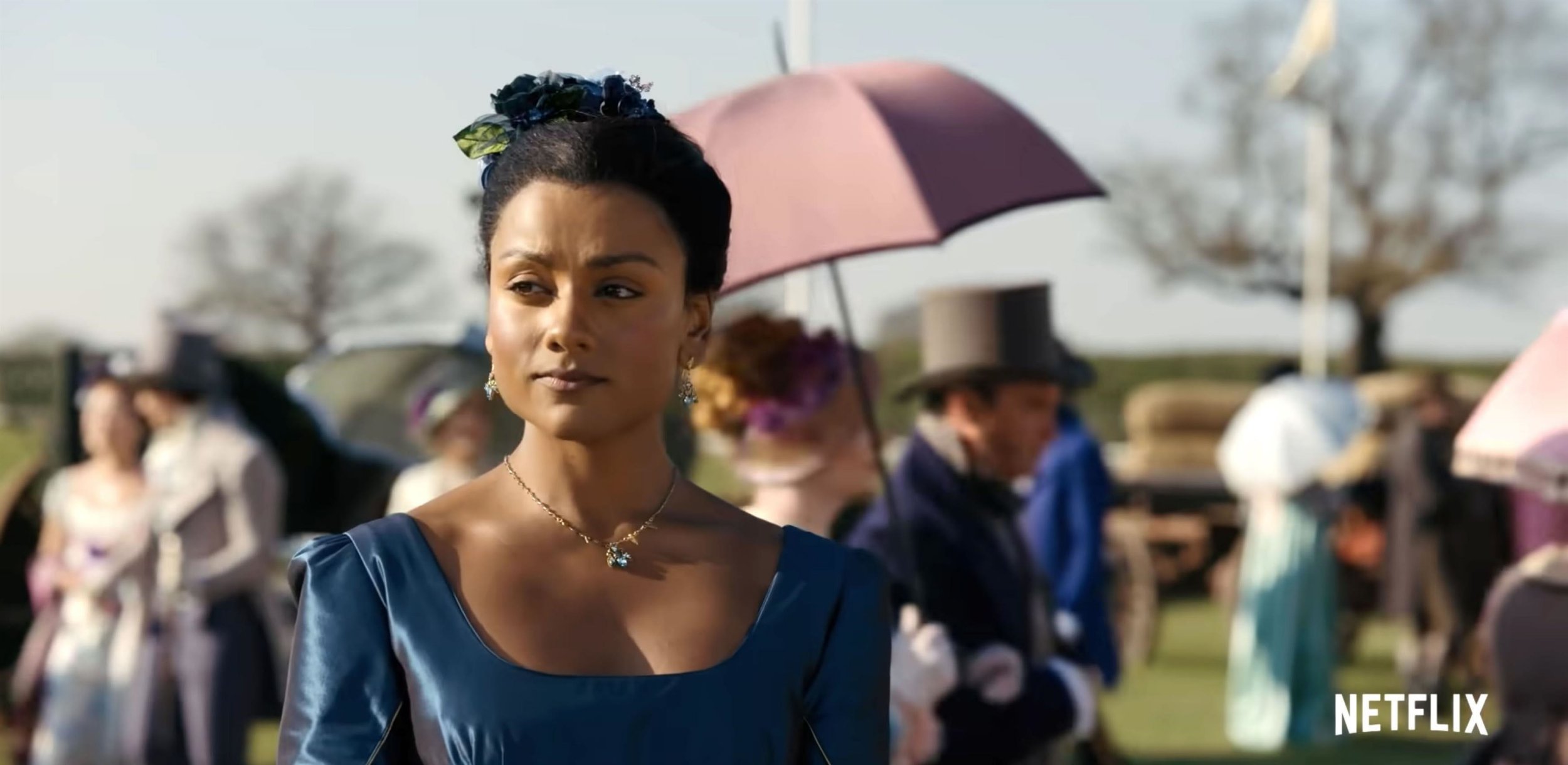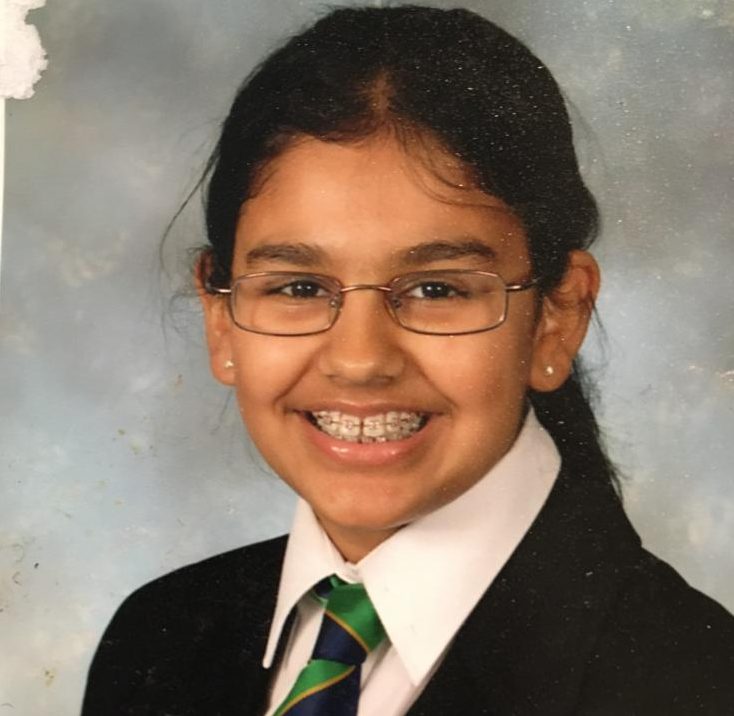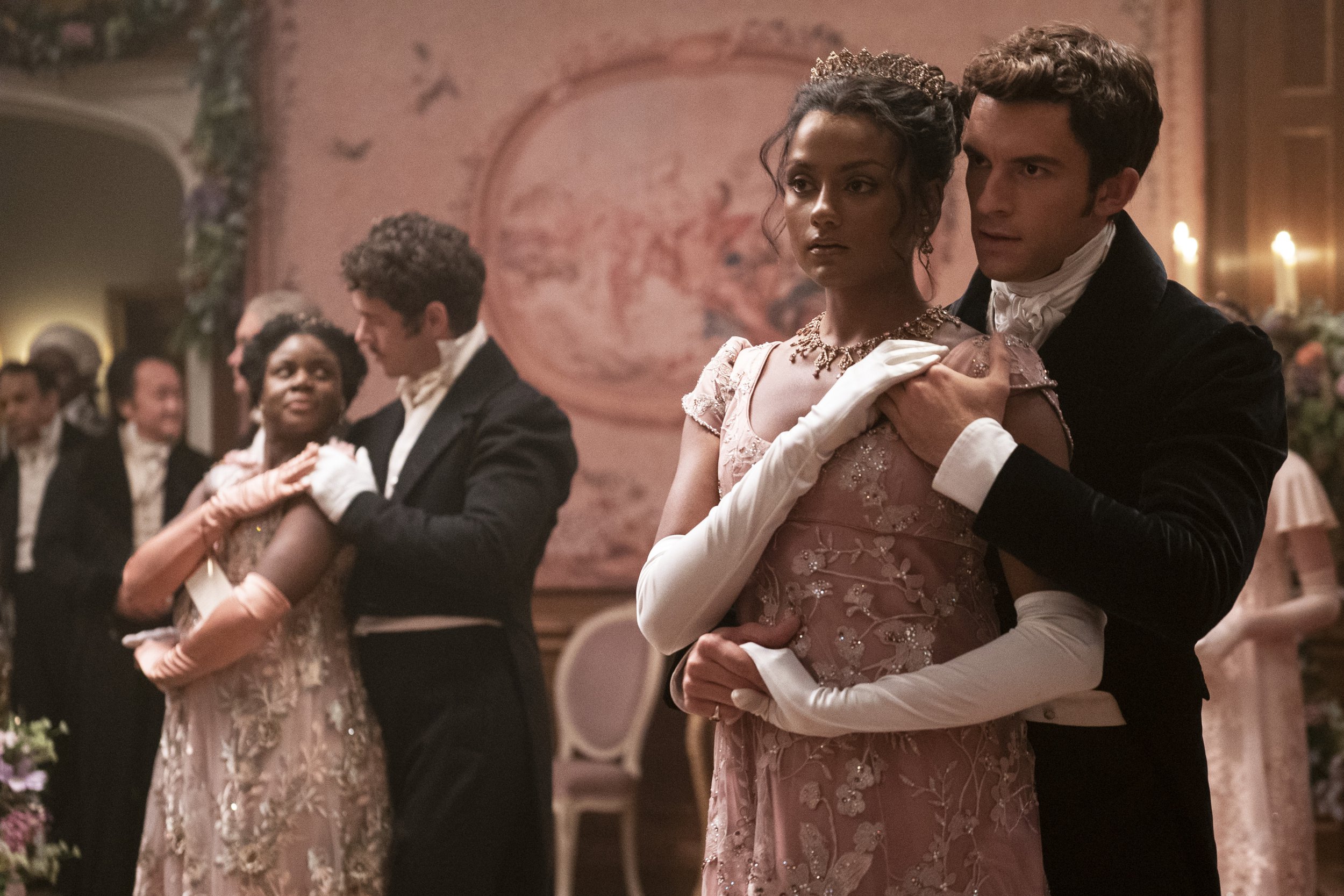
The moment I saw the (played by ) in the , I felt giddy with excitement but also a pang of sadness.
I realised that – even though I am quite the rom-com connoisseur – at my grand old age of 28 I’d never seen a brown woman portrayed in such an obviously romantic manner.
The and I couldn’t be more thrilled about it. It feels like I’ve been waiting an eternity for this moment.
Despite many people labelling cheesy rom-coms – or TV shows that revolve around love stories – as a guilty pleasure, I’ll be the first to admit that I’ve never felt a moment of shame at my love of the romance genre.
What I have felt, however, is disappointment. Disappointment that seemingly, romantic love like the kind I saw in films and TV shows, was not made for people who looked like me.
In my adolescence, I was a chubby brown girl, who wore glasses, braces and had more facial hair than any of my male counterparts.

The message I constantly consumed from the media was that, in order to be desirable or appeal to anyone romantically, I needed to be like the white characters that graced my favourites like Twilight, She’s All That and How to Lose a Guy in 10 Days.
I thought I needed to adhere to the eurocentric beauty standards that so many of the leading ladies I admired possessed. I wanted to be blonde like Hilary Duff, and fair like Anne Hathaway.
Even as representation got better for South Asians, we were still being represented as undesirable. Often we were shown as nerdy, like ; desperate, like Tom Haverford (played by Aziz Ansari) in Parks and Recreation; and romantically awkward like Ellen (played by Manjeeven Grewal) in Angus, Thongs and Perfect Snogging.
I even looked to Bollywood to feel seen, but as a South Asian in the diaspora, the storylines and settings were so far away from my actual life to feel even slightly relatable.

Growing up without this representation, I found myself shying away from conversations and situations that had anything to do with romantic relationships, when all my peers were diving in headfirst to get a practical crash-course in the lessons of love.
This was also before the days of instagram, so I was really in the dark about how to appreciate my beauty and see other brown women I could learn from.
However, I feel optimistic to notice that there has been an uplift in the amount of South Asian actors playing romantic leads, from Nikesh Patel as movie-star love interest Tom Kapoor in , to Indo-Guyanese actor Raymond Ablack getting his own shirtless cowboy fantasy montage in the mini-series Maid.
Ablack also plays the romantic lead, Joe, in the Netflix series Ginny and Georgia, and recognises the significance of playing these roles. In an interview he said: ‘I’ve seen this type of character represented by white men before. And I’ve seen it represented and mocked as POC men.’
The actor added that he was ‘eager to try and flip that idea on its head and show [brown people are] not just a joke’ and that they can be ‘leading men’.
For me though, seeing Simone Ashley, a young Tamil woman, playing heroine Kate Sharma in the latest series of the cultural phenomenon Bridgerton holds the most significance.
When the , I could barely contain my excitement at seeing a brown woman stealing lusty glances from eligible suitors and being set up in tangled love triangles, just like the ones I had watched on screen in my teen years.
My fantasy of seeing brown women being fantasised about was finally coming true.
To some, this may seem like an inconsequential step on the path to representation, after all there are still only 65 ethnic minority MPs following the 2019 General Election – a mere 10% of Members of the House of Commons.
However, seeing those who look like you on screen can impact minorities on a psychological level.
I know if I’d have seen more South Asian women depicted as desirable and, dare I say it, sexy, it could’ve done a lot for the hang ups and self-confidence I had when entering the dating world.
The first series of Bridgerton proved that having a diverse cast could capture an audience that would usually be put off from the romance-period genre, which famously lacks diversity.
I was completely hooked by the first season’s glamour, classic versions of pop tunes and, of course, the Duke’s spoon.
It seems I wasn’t alone, with the first season becoming one of .
This series is so important, as many depictions of love stories of South Asians still centre around traumatic experiences, such as an inter-faith marriage, like the recent BBC adaptation of Vikram Seth’s A Suitable Boy.
Consistently seeing brown people in positions where love must be rooted in deep struggle, rather than being allowed to be light and joyful, is harmful as it completely pigeonholes our stories as always having to be traumatic to be worth telling.
Seeing South Asian characters, like Kate Sharma revelling in the frivolity and suspense of a romantic drama is truly a breath of fresh air.
Her role in the new Bridgerton series proves that South Asians can be the centre of a romantic drama, and we don’t just have to see ourselves on screen portrayed as harmful, misleading stereotypes or background characters.
Although I’ve felt so disappointed it’s taken so many years to see South Asian characters given the romantic spotlight they deserve, I feel hopeful that the tide seems to be changing.
It means that a whole new generation of young South Asian girls who love the romance genre can finally see themselves on screen.
So if anyone needs me, I’ve marked my calendar and plan to binge the entire series the day it comes out.
Do you have a story you’d like to share? Get in touch by emailing [email protected].
Share your views in the comments below.

























